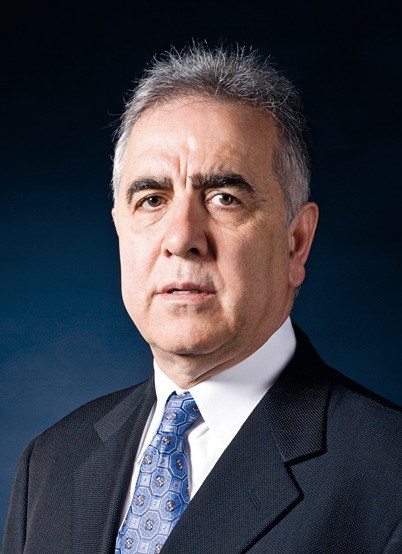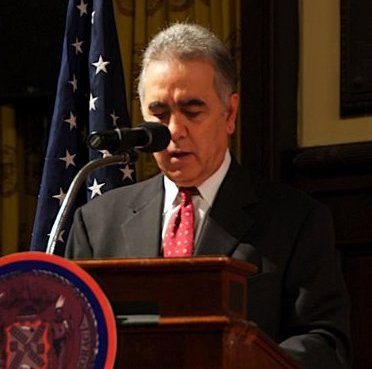
Geoffrey Robertson, prominent British expert on international law, wrote a 40-page report in 2009, exposing the false and inaccurate statements on the Armenian Genocide by the UK Foreign and Commonwealth Office (FCO).
Robertson’s investigative report, “Was there an Armenian Genocide?” was based on internal British documents obtained through the Freedom of Information Act, which revealed that the Foreign Office had denied the Armenian Genocide and misled the British Parliament on this matter in order to curry favor with Turkey.
Mr. Robertson had sent me an advance copy of his new 286-page book, “An Inconvenient Genocide: Who Now Remembers the Armenians?” to be published this month in the United Kingdom, Australia, Canada, and the United States. Anyone who reads this influential jurist’s meticulously researched book will have no doubt about the true facts of the Genocide and Armenians’ just claims for restitution.
The confidential FCO documents recently obtained by Robertson reveal that the British government has made a gradual shift in its position on the Armenian Genocide, going from denial to declining to state its position. The Foreign Office acknowledges that the change in governmental policy is a direct result of the powerful legal arguments advanced by Mr. Robertson in his 2009 report.
Until recently, Great Britain had tenaciously clung to its outright denialist position on the Armenian Genocide. A secret 1999 FCO memo, quoted by Robertson, admitted that the British government “is open to criticism in terms of the ethical dimension. But given the importance of our relations (political, strategic, and commercial) with Turkey, and that recognizing the genocide would provide no practical benefit to the UK or the few survivors of the killings still alive today, nor would it help a rapprochement between Armenia and Turkey, the current line is the only feasible option.”
However, shortly after the publication of Robertson’s 2009 report, British officials quietly shifted their position from denial to avoidance of taking a stand on the genocide issue. In a 2010 internal memo, FCO stated: “Following Mr. Robertson’s report and the publicity it attracted, we have updated our public line to make clear that HMG [Her Majesty’s Government] does not believe it is our place to make a judgment (historical or legal) on whether or not the Armenian massacres constituted genocide.” In another memo, FCO explained that it will no longer maintain that “the historical evidence was not sufficiently unequivocal to persuade us that these events should be categorized as genocide.” The memo went on to assert that “there is increasing agreement about the extent of the deaths and suffering experienced by the Armenian community” and that “jurisprudence in relation to genocide, and particularly the nature and type of evidence required to prove the relevant intent, has developed significantly in the wake of events in Rwanda and the Balkans in the 1990’s.” Yet, FCO still advised against an explicit recognition of the genocide because “the Armenian diaspora in the UK is relatively small (less than 20,000) and there is limited wider public interest.”
Nevertheless, in view of the upcoming Centennial of the Armenian Genocide, the British government has decided to become a bit more accommodating on this issue. Last year, when the British Ambassador to Lebanon asked London for guidance on attending an April 24 commemoration in Beirut, the Foreign Office advised him to go ahead. FCO also recommended to its staff not to “give the impression that we deny what happened in 1915…we still consider them (the massacres and deportations) to be truly dreadful and in need of remembrance.”
To bring the genocide issue to a legal resolution, Mr. Robertson makes two suggestions: that the Armenian government submit it “to adjudication at the International Court of Justice [World Court] pursuant to Article IX of the Genocide Convention” or ask the UN Secretary General to establish an ad hoc court on the Armenian Genocide.
Geoffrey Robertson should be commended for authoring a most important book on the eve of the Armenian Genocide Centennial. The Armenian National Committee of UK has already purchased 1,000 copies for distribution to elected officials and members of the media in London. The book is available from Amazon.com. I feel honored that Mr. Robertson has made half a dozen references to my columns in his monumental work.
Mr. Robertson has appropriately dedicated his book to the cherished memory of Ben Whitaker, author of the 1985 UN Report which classified the Armenian mass killings as genocide.


